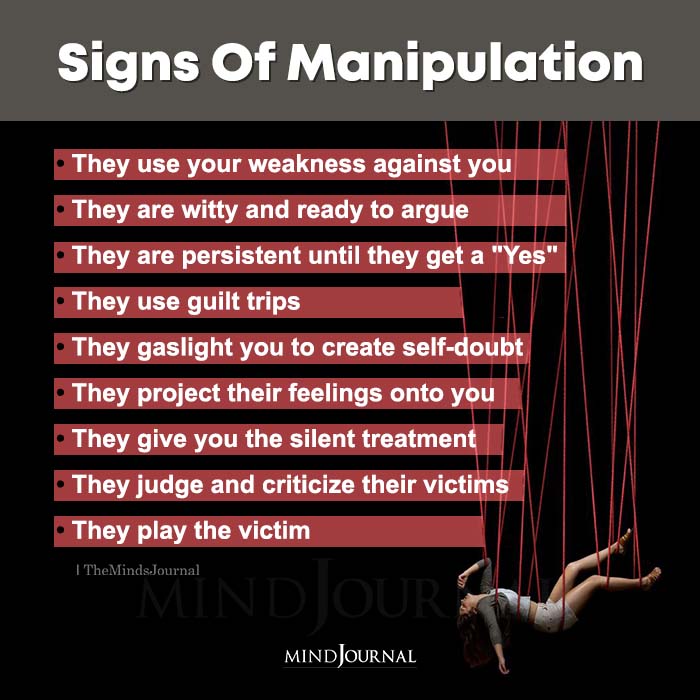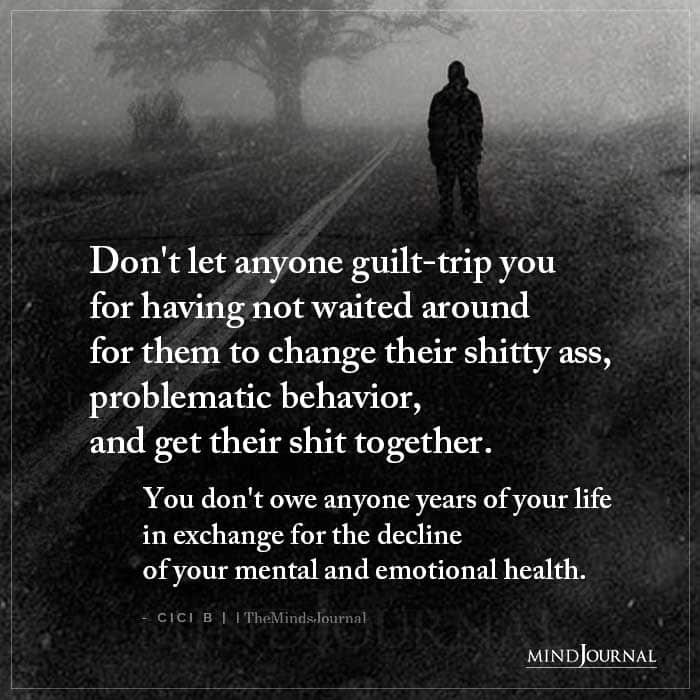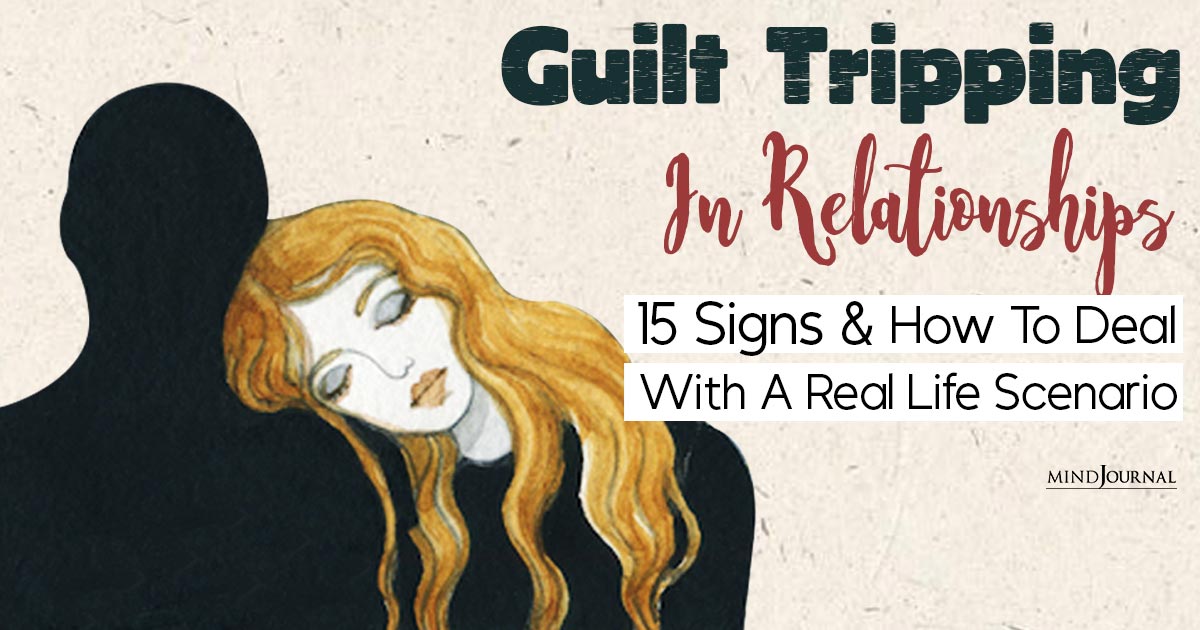Have you ever felt trapped in a relationship where guilt seems to be the currency of control? Let’s discover what guilt tripping in relationships means and the signs of guilt tripping in a relationship to learn how to break free from this destructive manipulation.
What is guilt tripping in relationships?
Relationships are built on love, trust, and mutual respect. However, there are instances when one partner may resort to harmful tactics to control and manipulate the other. One such toxic behavior is guilt tripping.
Guilt trip meaning in relationship:
Guilt tripping in relationships is a manipulative tactic employed by one partner to control and dominate the other through emotional coercion and guilt-inducing strategies.
It involves exploiting the natural empathy and compassion of the targeted individual, making them feel responsible for the negative emotions or actions of their partner.
To gain a better understanding of guilt trip meaning in relationship, let us consider the story of Annie and Devon, a couple caught in the web of manipulation.

Annie and Devon’s story:
Annie and Devon, a couple in their mid-twenties, have been together for two years. At first, their relationship seemed loving and caring, but over time, Devon’s behavior took a darker turn. He began to use guilt tripping as a means to control Annie and get his way.
How? Let’s explore the signs of guilt tripping in a relationship so that we can dive deep into what guilt tripping in relationships actually looks like and find out how you can deal with it.
Related: 9 Ways Your Partner Uses Guilt Trips You To Get What They Want
Signs of guilt tripping in a relationship
By understanding guilt trip meaning in relationship, and the dynamics and impact of guilt tripping, we can strive for healthier and more fulfilling relationships. Let us explore the concept of guilt tripping by highlighting 15 signs that indicate its presence in a relationship.
1. Emotional blackmail
Guilt tripping often involves emotional blackmail, where one partner tries to manipulate the other by leveraging their emotions. This can manifest as statements like, “If you loved me, you would do this for me,” or “I can’t believe you would abandon me when I need you the most.”
In Annie and Devon’s case, when Annie expressed her desire to spend time with her friends, Devon responded with guilt-inducing remarks that made her question her priorities and feel responsible for his emotional well-being.
2. Victimizing themselves
A guilt tripper may frequently portray themselves as the victim, making their partner feel guilty for their emotional state. For example, when Annie raised a concern about their relationship, Devon responded with, “You always find faults in me. I can never do anything right.”
By playing the victim, Devon shifted the focus onto Annie, making her question her actions and feel guilty for expressing her concerns.
3. Excessive blaming
Another sign of guilt tripping is the tendency to consistently blame the partner for negative outcomes, regardless of their actual involvement. For instance, if Annie and Devon argued about finances, Devon might say, “If you were more responsible with money, we wouldn’t be in this mess.”
By placing the blame solely on Annie, Devon evokes guilt and deflects responsibility for his own actions.
4. Undermining achievements
Guilt trippers often belittle their partner’s accomplishments to make them feel inadequate. In Annie and Devon’s relationship, when Annie received a promotion at work, Devon responded with, “I guess you’re too busy for me now. You don’t care about our relationship anymore.”
By undermining Annie’s achievements, Devon created a sense of guilt within her, making her question her commitment to their relationship.
5. Silent treatment
The silent treatment is a common tactic employed by guilt trippers as a form of punishment. By withdrawing emotionally and refusing to communicate, they make their partner feel isolated and desperate for their attention and forgiveness.
In Annie and Devon’s case, Devon would ignore Annie for days after a disagreement, leaving her feeling responsible for his emotional withdrawal and yearning for his validation. This is one of the most common signs of guilt tripping in a relationship.
6. Gaslighting
Gaslighting is a manipulative technique wherein the guilt tripper distorts facts and events to make their partner doubt their own perceptions and sanity. For example, when Annie confronted Devon about his excessive flirting, he responded with, “You’re just being paranoid. I’m always faithful to you. You must be imagining things.”
By undermining Annie’s trust in her own judgment, Devon exerted control over her emotions and actions.
7. Emotional overreactions
Guilt trippers often react disproportionately to minor issues, making their partner feel guilty for causing their extreme emotional distress. For instance, if Annie forgot to respond to a text message promptly, Devon might say, “I can’t believe you would ignore me like this. You obviously don’t care about our relationship.”
By exaggerating the situation, Devon made Annie question her own intentions and feel responsible for his emotional well-being. This is one of the most basic signs of guilt tripping in relationships.
Related: 5 Types Of Psychological Manipulation And How To Deal With Them
8. Conditional love
Guilt trippers use love and affection as rewards for compliance and punishment for asserting independence or questioning their actions.
Statements like, “If you truly loved me, you would do what I want without questioning it,” create an atmosphere where love becomes conditional, and guilt is used to manipulate the partner’s behavior.
Annie often found herself questioning her worth and love for Devon due to his conditional affection.
9. Manipulative ploys
Guilt trippers employ various manipulative tactics, such as exaggeration, playing the victim, or using tears to make their partner feel guilty and change their decisions.
For example, when Annie expressed her desire to go on a trip without Devon, he responded with, “I can’t believe you want to go on that trip without me. I’ll be all alone and miserable.”
By appealing to Annie’s empathy and fear of causing him pain, Devon attempted to control her choices.
10. Guilt-inducing statements
Guilt trippers frequently use statements that imply their partner’s actions or choices are causing them distress or disappointment.
For instance, when Annie expressed her desire to pursue higher education, Devon responded with, “So, you want to abandon our plans for the future? What about our dreams?”
By framing Annie’s pursuit of personal growth as a betrayal of their shared goals, Devon instilled guilt in her, making her question her aspirations.
11. Isolation
Guilt trippers often isolate their partners from friends and family, creating a dependency on them for emotional support. By limiting Annie’s support system, Devon increased her vulnerability to guilt tripping.
Annie found herself increasingly isolated, with Devon becoming her primary source of validation and companionship.
12. Unreasonable expectations
Guilt trippers often impose unrealistic expectations on their partners, making them feel guilty for not meeting these standards. For example, Devon might say, “I expect you to be available for me 24/7. If you truly loved me, you would prioritize me over everything else.”
By setting unattainable expectations, Devon made Annie feel perpetually inadequate and guilty for not being able to fulfill his demands.
13. Manipulative comparisons
Guilt trippers frequently compare their partners to others to make them feel guilty and inadequate. For instance, Devon might say, “Why can’t you be more like Sarah? She always puts her partner’s needs first.”
By comparing Annie unfavorably to someone else, Devon undermined her self-esteem and made her feel guilty for not living up to his idealized image.
14. Withholding affection
Guilt trippers often use the withdrawal of affection and intimacy as a means of punishment. They make their partners feel unloved and unworthy, asserting that affection can only be earned through compliance.
For example, Devon might say, “I can’t be close to you when you disappoint me like this. You need to earn my affection.” This behavior instills guilt in Annie, leaving her desperate for his validation and affection.
15. Guilt-induced obligations
Guilt trippers make their partners believe that they owe them emotionally and otherwise for all they have done in the relationship. They create a sense of indebtedness, making it challenging for their partners to assert their needs or boundaries.
For example, Devon might say, “After everything I’ve sacrificed for you, you can’t even do this one thing for me?” By emphasizing Annie’s perceived indebtedness, Devon manipulates her into compliance through guilt.
These are some of the most common signs of guilt tripping in a relationship that can be observed widely. However, guilt tripping in relationships can also be present in non-romantic or platonic relationships with similar signs and red flags.
Related: Unhealthy Guilt Syndrome: How It Affects Your Mental Health And Relationships
Tips on how to confront guilt tripping in a relationship
Even though we may have understood guilt trip meaning in relationship, confronting guilt tripping in a relationship can be a lot more challenging. But it’s crucial for maintaining a healthy and balanced dynamic. Here are some tips to help you address guilt tripping effectively:
1. Recognize the signs
Educate yourself about the signs and tactics of guilt tripping. Awareness is the first step toward addressing the issue.
2. Self-reflection
Take some time to reflect on your own feelings, needs, and boundaries. Understand that you have the right to prioritize your well-being and happiness.
3. Open communication
Initiate an open and honest conversation with your partner. Choose a calm and non-confrontational setting where both of you can express yourselves freely.
4. Use “I” statements
Frame your concerns using “I” statements to express how their behavior makes you feel. For example, say, “I feel hurt and manipulated when you guilt trip me.”
5. Specific examples
Provide specific examples of situations where guilt tripping has occurred. This helps your partner understand the impact of their behavior and reduces the chances of miscommunication.
6. Express boundaries
Clearly communicate your boundaries and expectations. Let your partner know what behavior is unacceptable and what you require for a healthy relationship.
7. Active listening
Give your partner an opportunity to express their perspective without interrupting or dismissing their feelings. Active listening promotes understanding and open dialogue.
8. Seek support
If the guilt tripping persists or becomes more severe, consider seeking support from a therapist or counselor. They can provide guidance and help both partners navigate the issues at hand.
9. Set consequences
Establish consequences for continued guilt tripping. Make it clear that you will not tolerate manipulative behavior and that there will be repercussions if it persists.
10. Self-care
Prioritize self-care throughout the process. Take care of your mental, emotional and physical well-being by engaging in activities that offer you joy and seeking support from friends and family.
11. Boundaries enforcement
Enforce the boundaries you set by consistently asserting yourself and not giving in to guilt. Be firm and consistent in your response to guilt tripping behavior.

12. Evaluate progress
Regularly evaluate the progress in your relationship. Note any positive changes and address any areas that still require improvement. Celebrate small victories along the way.
Remember, dealing with guilt tripping in relationships takes time and effort from both partners. It’s essential to foster open communication, mutual respect, and a willingness to change.
If the guilt tripping persists and your partner is unwilling to address the issue, it may be necessary to reevaluate the overall health of the relationship.
Related: How To Free Yourself From A Guilt Complex: 18 Mindful Practices To Try Today
Takeaway
Guilt tripping in relationships is a toxic behavior that can have severe consequences for the emotional well-being of individuals involved. Annie and Devon’s story serves as a poignant example of how guilt tripping can manipulate and control a partner, eroding their self-esteem and autonomy.
It is crucial to recognize the signs of guilt tripping in relationships and take steps to address and confront this manipulative behavior.
Communication, setting boundaries, and seeking professional help, if necessary, can empower individuals to break free from toxic patterns and establish healthy, respectful relationships built on trust and mutual support.
Remember, you deserve to be in a relationship where your worth is acknowledged and your emotions are respected. Let go of guilt tripping, embrace self-care, and create the loving, supportive relationship you deserve.
Frequently Asked Question (FAQs):
Is guilt-tripping a red flag?
Yes, guilt-tripping is a red flag as it manipulates emotions and undermines healthy communication in relationships or interactions.
What is an example of a narcissist guilt trip?
A narcissist might say – “I always sacrifice for you, but you’re so ungrateful,” to gain control and avoid responsibility.
How do you deal with guilt-tripping in a relationship?
Set boundaries, communicate assertively, and prioritize your well-being. Address the manipulation calmly, and seek professional help if necessary.










Leave a Reply